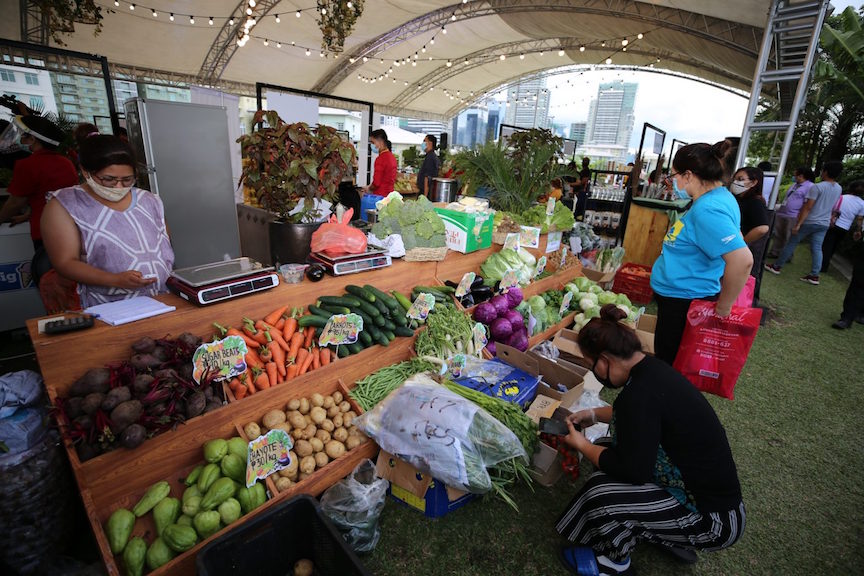Despite the COVID-19 pandemic and the imposed community quarantine since mid-March, the Philippines continues to be food-secure with sufficient supply of basic food commodities.
“We remain to be so, given the continuous strong support of President Rodrigo Roa Duterte and the Cabinet’s Economic Development Cluster, headed by Finance Secretary Carlos Dominguez III,” said Agriculture Secretary William Dar.
“Thus, we assure fellow Filipinos that we will have enough food on our table by the end of the year and onto the first quarter of 2021,” he added.
“We are confident that based on mid-July estimates, our food supply situation and outlook is comfortable, despite the constricted movement in the early weeks of the community quarantine,” the DA chief added.
For rice, the country’s main staple, the DA forecasts a year-end stock good for 89 days.
In fact, palay production during the second quarter of the year increased by 6.85 percent (%) compared to the same three-month period last year, according to the Philippine Statistics Authority (PSA).
 Photo Credit: Philippine Information Agency
Photo Credit: Philippine Information Agency
The increment was due to the increase in harvest area by 4.5% percent to 960,000 hectares, while average palay harvest per hectare climbed up to 4.31 metric tons (MT), versus the previous year’s 4.21 MT, the PSA said.
For other major food commodities, the supply outlook by the end of the year is likewise favorable: for corn – good for 237 days; chicken – good for 182 days; and vegetables – good for 20 days.
“Given this favorable outlook, we will continue to implement our umbrella program, called ‘Plant, Plant, Plant,’ to further boost the production of major food commodities, led by rice and other major crops, aquaculture and fish, poultry and livestock animals,” said Secretary Dar.
“Likewise, we will vigorously assist our farmers, fishers and other rural folk to enable them to survive and recover from the momentary setback due to the pandemic,” he added. “We are elevating our game guided by the policy shifts in our food security framework to reboot and grow the country’s agriculture and fishery sector onto the new normal,” Secretary Dar said.
He said, “to sustainably feed the country’s growing population in the new normal, we must increase the sufficiency levels of basic food and other commodities, by prioritizing domestic production.”
To attain this, he said the DA will harmonize the food supply chain systems with other related sectors such as the economy, energy, water, environment, manufacturing, and health, and at the same time build resilience.
“We will also adopt context-specific policies, as we recognize the differences between urban and rural settings, and address specific needs,” he added.
The other policy shifts include:
- Focus on production-to-consumption value chain, empower the marginalized sector, and support diverse distribution efforts with good logistics;
- Address hunger and all forms of malnutrition, such as obesity and micronutrient deficiencies, through production and consumption of quality, nutritious food; and
- Enhance and strengthen the country’s biosecurity measures to ward off entry emerging infectious pests and diseases of animals, crops and fish species.
“In all, the DA family will stand firm behind President Rodrigo Roa Duterte, implementing needed programs and initiatives in the last two years of his administration,” Secretary Dar said.
“In these trying times, and onto the new normal, we will continue to serve our farmers, fishers, and the consuming public, providing them needed assistance to increase their productivity and incomes, and quality, affordable and nutritious food,” he concluded.









